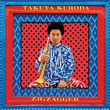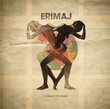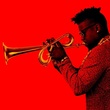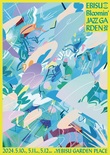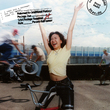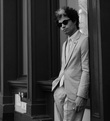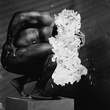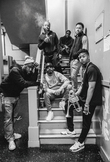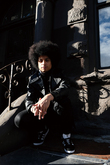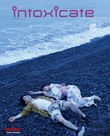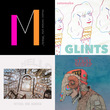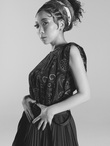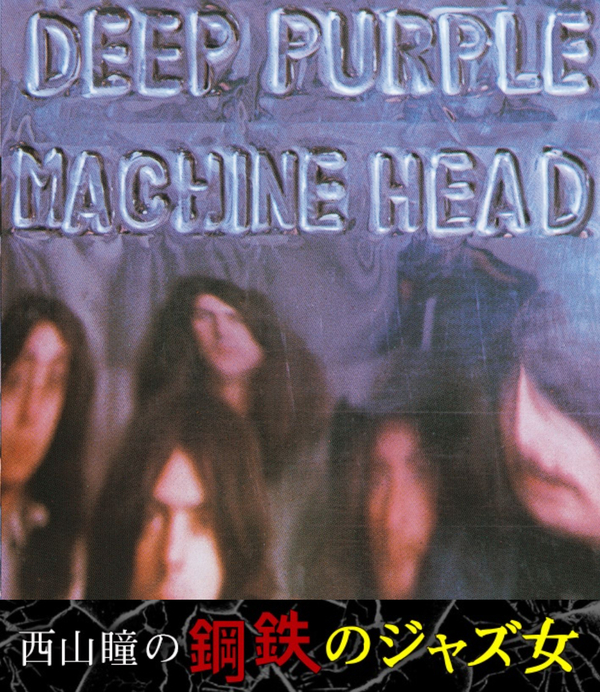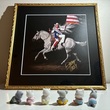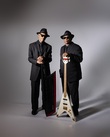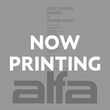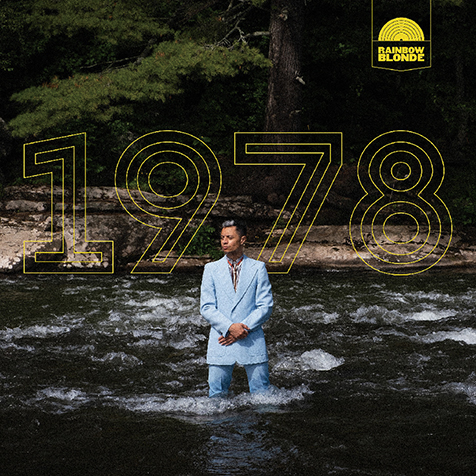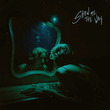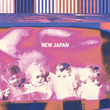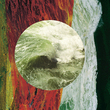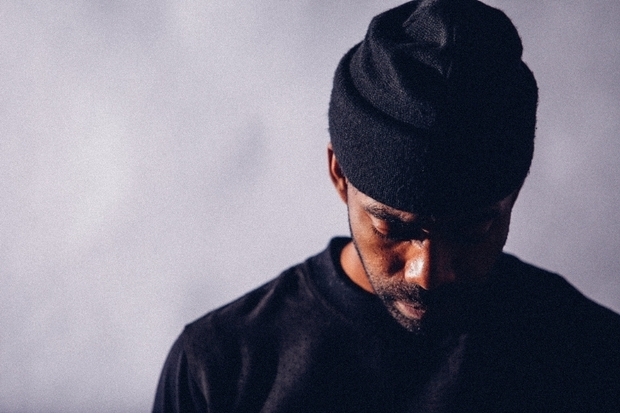
When I started to write the record, I was listening to Atmos for Peace so much.
――You are very active as a composer or an arranger, being involved in works of many other artists. When did you start writing songs?
King: I started composing for parts and stuff when I was in college. (At the beginning,) it was definitely more modern jazz because that’s what I was studying at the time. Not big band stuff, more small group stuff. I really like harmony, I love progression. That was a time when I was really trying to find pretty melodies over complex harmony.
――Even prior to this latest album “Lashes” , you have been co-working on the vocals part at various occasions, including those with Esperanza Spalding and Erimaj. What kind of instruments do you use when composing the vocals?
King: Definitely keyboards and piano.
――And you also program the sequences by yourself?
King: Yes. Well, I’ll right first on the keys, and once I have an idea to have a good form of the song, then I’ll move it into the programing, to the computer, and see what I can do around that. That’s when I start to really form it out.
――You create the beats using a sampler too?
King: Yes, I do a lot of that too.
―― “Lashes” features many sounds, including electronic sounds. We can hear that you have paid a fair amount of consideration to the sonic aspects of the record, such as in the usage of multi-track recordings etc.
King: For me, I wanted to do an album that showed everything that I like – something that I would like to listen to. I think the voice and the harmony was something that I wanted to keep constant so you would know exactly who it is and what it is. But I personally like change. So the atmosphere, the echoes and the effects was also what I wanted to keep constant. The majority of times, I like heavy drums, but there are times when I just want something that hits me lightly. That was the idea for it.
――Also, the impression I got when I first listened to the album was that it had a really strong ‘rock’ tone to it.
King: Yes, there are definitely moments where it’s like it’s really really guitar-heavy and driving. There are 3 songs in the album that’s really rock, I would say.
――In producing this album, where there any musical acts or works you were inspired by?
King: I was kind of grabbing from a lot of places. But the biggest one, I would say, is Thom Yorke’s solo stuff that he’s done (“The Eraser” (2006)), and I really liked this album by Atmos for Peace called “Amok”. I’m a huge fan of Brain Eno, but also I love Bonobo. Those are just a few, but I try to take a bunch of stuff and put them together. And the jazz, to me, is in there too. I just try to take those things and have a lot of harmony under it to keep the jazz in there. I’m blending all of those different styles.
――Right, understand.
King: And the jazz, to me, is in there too. I try to take these things to have a lot of harmony under it, to keep the jazz in there. There are some spaced out moments that are more jazzy. There’s a guitar solo on one of the songs guitar, and phrases over it, so yeah, it’s a lot of blending of different styles.
――Matthew Stevens who’s playing guitar on this album too, exhibits a feel that goes right between jazz and rock also on his own solo work, “Woodwork” (2015).
King: That’s right. That’s why there’s this sense that the guitar is performing its solo part in a jazz setting.
――You frequently talk about making the harmony, but what kind of harmony do you tend to prefer?
King: I like dark harmony – really, really dark harmony. Haunting, but beautiful harmony. My favorite composers are Maurice Ravel and Erik Satie. The way that they are moving is dark but yet beautiful. We also talked earlier about Joe Henderson, he has a mysteriousness to it, but with beauty.
――Dark, mysterious but beautiful – that also applies to Radiohead.
King: (Laughs) yeah, that’s some of my favorite stuff! I grew up on it!
――You mentioned Atmos for Peace, and not necessarily Radiohead.
King: No, I love Radiohead (laughs). But when I started to write the record, I was listening to Atmos for Peace so much. It was like my life. What I woke up to, what I would sleep to, what I took the train listening to in New York. It was the drive of it, the dance of it, the rock of it, and the programming of it.
―― “Amok” by Atmos for Peace was released in 2013. Does that mean that it was around then that you started to write “Lashes”?
King: I started writing the music for it at around end of 2013, but then 2014 was when I started narrowing down the song, like 10 or 11 songs I really wanted to focus on recording. And then 2014 to 2015 was when we started recording.
――I feel that the drums on Atmos for Peace (drummer: Joey Waronker) are livelier compared to that on Radiohead.
King: I agree. I like big drums, heavy drums. I think from my ears, when I hear Atmos for Peace, they’re mixing that stuff and the effects in it, the atmospheric stuff that’s happening with Thom’s voice. I was trying to get that happening, make that happen to my own music. To set a musical environment when people who are listening to it.
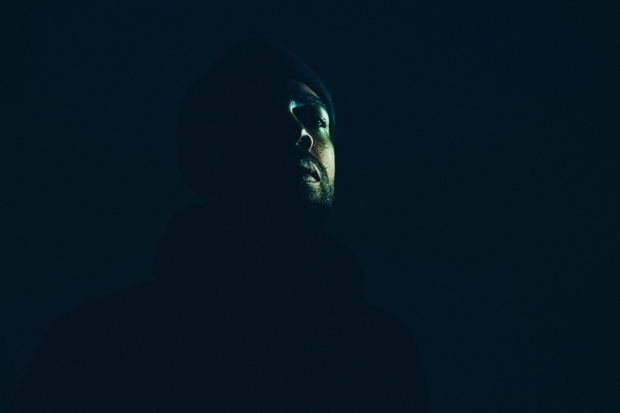
Being inspired by Esperanza’s unique approach
―You said that when you were a child, you started singing in the choir at church, mostly gospel. I suppose. But from this album, that kind of gospel or soul/R&B feel doesn’t seem to be that strong in this particular album.
King: I agree, it’s definitely not. I grew up doing that for sure, but I realized that gospel wasn’t really my thing. I enjoyed singing more classical music.
――Apart from Thom York, are there any singers you like in particular?
King: I love Nat King Cole. I really love David Bowie, Marvin Gaye of course. Paul McCartney, I love his voice.
――Do you write your own lyrics too? And how are you inspired when you write?
King: Yes, I do. The song in my record, like “Parisian Leaves”, is about a time when we were in Paris. It’s about when we went out for breakfast one morning and we were sitting in this park, and all of these rats started coming out. It was really disgusting and nasty and it destroyed our appetite. So that song was about these rats in the park. And for the song “If”, that’s talking about social media – how that’s come along and taken over the majority of humans’ minds.
――What about the song opening the album, “Ibaraki”?
King: We were there with Takuya playing. And I wrote that song in the hotel.
Kuroda: We went to Ibaraki to perform our album-release live shows (for the album “Rising Sun” released in 2014). For some reason, that show reached a fever pitch (laughs).
King: Yeah, that was the best gig.
――And what is the song singing about?
King: It’s talking a lot about nature. I remember looking out from the hotel – from the room that was facing water. It’s a lot about analogies and situations where things are surfacing to land out of water. And it’s a lot of different stuff happening in there too. It’s about people, things or situations where information is hidden from the people, and that information surfacing to the people. So that’s what the song is about.
――(Speaking about heavy drums,) Jamire Williams, I thought he is based in LA, but is it that you had him fly in from NY to take part in the recording?
King: When we did the first two sessions for the record in 2014, I brought him out. He’s like one of my oldest friends. We ran a group together called Erimaj that I wrote a lot of music for, so I had to have him because he understood my vision and how I want the music to be played.
――Yes, in fact, there does seem to be a Erimaj-feel with “Lashes” in the sense that there is this indie-rock element to it. In the meantime, you also appointed Justin Tyson to play on some of the songs. What was the element you wanted to draw out from him?
King: Justin is like a truck. Justin and I play together on Esperanza’s band, and we’ve been on the road for almost two years now on the “Emily D+Evolution” tour, so our relationship has grown, musically and spiritually. He’s actually become one of my favorite people to be around, and he’s an incredible drummer. He’s beat is really really, really heavy – he has a big sound on the drums that I wanted for songs like “Uncle Richie” and “Climb”. He plays with a lot of force, but at the same time, he’s really sensitive to what’s going on - he’s really musical with it. I don’t hear many drummers who plays like that – with that kind of musicality that Justin has.
――Esperanza’s “Emily D+Evolution” also featured heavy rock sounds, but how significantly inspired were you by her and her band?
King: Definitely. I’m really inspired by her singing, and she’s called on me for things I had no idea I could do. Her way of communicating in certain situations is brilliant to me. Her writing and how she puts things together is really unique and inspiring. Her decisions are truly inspiring too, and quick decisions at certain times. She’s super smart, well-read and knows a lot. I learn a lot from her.
――At the “Emily D+Evolution” live performances, we saw some theatrical movements from the band members too.
King: Yeah, that was really really hard (laughs)! That was the part I really didn’t… well, yeah, that was challenging. We were like, ‘we’re doing it’, and well, it’s my job and I have to, well, do it.
――Even though under the same concept project, comparing the performance at the last [Tokyo JAZZ] event and her solo performance this May, the theatrical part seem to have been shortened. It seems like the length seems to vary between performances.
King: A lot of times, we’ll rehearse and come up with a lot of stuff, and then once we get in front of people, we start to see that certain things don’t really work. So it’s like a lot of adding and taking away. So a lot of the shows are different. Especially when we do festivals. (At festivals,) you normally get a 60-minutes time, so we have to take out some of the acting, and get to the stuff faster. So it all depends on which situations we’re put in.
――What’s the story behind getting “Lashes” released from the label, Ropeadope* (Japanese edition released from AGATE)?
*Ropeadope: A label based in Philadelphia who was founded in 1999, and has been actively releasing records from genres ranging from jazz, funk to hip hop. Latest releases from the label includes “Family Dinner Vol. 1” (2013) by Snarky Puppy, “Stretch Music” (2015) by Christian Scott, and Terrace Martin’s “Velvet Portraits” (2016).
King: My friend, Christian Scott, the trumpeter, he put me into contact. I sent him some music from my early, early mixes, and they really showed interest.
――The label, Ropadope, has this impression of being the far most edgiest label in the latest jazz scene.
King: They’re really eclectic. They put out a lot of different stuff that I really like. I thought it would be cool to work with them. Actually, the older stuff they were doing too was really inspiring – putting out DJs like King Britt, or putting out a record from by a good friend of mine named John Ellis, who’s an incredible saxophone player.
――Finally. What kind of music are you listening to, recently?
King: That’s so hard. Ray LaMontagne, I think he’s an incredible songwriter. I’ve been listening to Bjork’s new record, “Vulnicura” (2015), a lot of Brian Eno, but not so much the latest one. I think there’s a record he did in the 80s with Daniel Lanois. It’s incredible, I love that record.
――It makes sense that you would name Daniel Lanois there. You certainly seem to like works that are dark and fluctuating, which comes with a nice ambience.
King: Yeah. I also love Schoolboy Q. I think he’s a guy that’s doing something I’m really in to. And another guy named Skepta from the UK.





